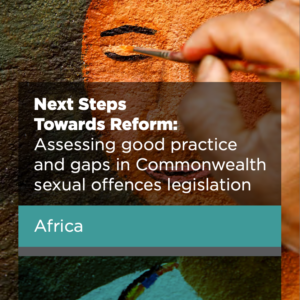Mozambique’s criminal law on sexual offences derives from colonial-era Portuguese penal law. Sexual offences are set out in the Penal Code (No 35/214), as amended (PC). The Law on Domestic Violence Against Women of 2009 (No 29/2009) criminalises a range of violent assaults in marriage, including rape. The Criminal Procedure Code (No 16489 of 15 February 1929) (CPC) applies to sexual offences.
In 2014, Mozambique reformed the sexual offences provisions of the PC, introducing important reforms such as decriminalising consensual same-sex sexual activity and criminalising marital rape. A review of the PC that commenced at the time of the 2014-15 reforms recommended additional changes, but at the time of writing, no further reforms had been made. The CPC was not part of this review and has not been amended.
Despite the significant 2014 reforms, the amended PC does not meet good practice in a number of respects assessed in this report. For example, the crime of rape and the crime of “atentado ao pudor” (“attack or assault against modesty”) do not explicitly cover all acts of non-consensual penetration by all parts of the body or objects or all acts of sexual touching. Further, the offence of atentado ao pudor must be accompanied by violence, which excludes many sexual assaults committed without violence, such as those involving threats or other coercion, or where the person is incapable of giving genuine consent, such as intoxication or unconsciousness, and other cases where there is a clear lack of consent.
Further reform of the PC is necessary to make explicit that rape and sexual assault can occur without the use of force or violence and that evidence of resistance or submission is not required to prove there was no consent. It should also explicitly provide for the criminalisation of all non-consensual acts of sexual penetration and touching by all body parts and objects, and repeal the requirement for violence.
While all child sexual offences are gender- neutral, they are not comprehensive. For example, grooming for sexual purposes is not expressly criminalised. Further, the PC provides for a serious penalty of 20-24 years for rape of children under 12, whereas rape of a child over 12 years carries the same penalty as rape of an adult, which is much lower (2-8 years). Mozambique does not provide close-in-age defences, which are essential for good practice sexual offences law to prevent criminalising consensual sexual activity between young people and their peers.
Mozambique is a state party to relevant international and regional human rights treaties, including the Convention on the Elimination of All Forms of Discrimination against Women, Convention on the Rights of the Child, Convention on the Rights of Persons with Disabilities, Convention against Torture and Other Cruel Inhuman or Degrading Treatment or Punishment and International Covenant on Civil and Political Rights. Mozambique is also a state party to the African Charter on Human and Peoples’ Rights and Protocol to the African Charter on Human and Peoples’ Rights on the Rights of Women in Africa (Maputo Protocol).
Read more about the reform of sexual offence laws in Mozambique.
The full assessment of Mozambique is available here.



